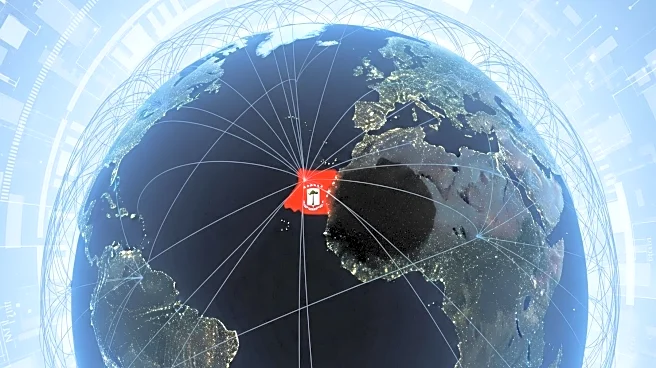What's Happening?
Equatorial Guinea has imposed a yearlong internet shutdown on Annobón island following protests against a Moroccan construction company's activities. Residents complained about environmental damage caused by dynamite explosions, leading to the government's repressive response. The internet outage has severely impacted daily life, disrupting banking and healthcare services. The island, known for its troubled history with the central government, faces increased isolation and repression as authorities clamp down on dissent.
Why It's Important?
The internet shutdown in Annobón highlights the growing trend of governments using digital repression to silence dissent. This tactic undermines freedom of expression and access to information, exacerbating the island's socio-economic challenges. The situation reflects broader issues of governance and human rights in Equatorial Guinea, where political power is concentrated in the hands of long-serving President Obiang and his family. The international community's response to such actions could influence future diplomatic relations and human rights advocacy.
What's Next?
The ongoing internet outage may lead to further international scrutiny and pressure on Equatorial Guinea to restore access and address human rights concerns. Activists and residents continue to seek independence and better living conditions, potentially escalating tensions with the government. The situation could prompt discussions on digital rights and the role of technology in governance.
Beyond the Headlines
The internet shutdown in Annobón raises questions about the ethical implications of digital repression and the responsibility of international actors in addressing human rights abuses. It underscores the need for global advocacy and support for marginalized communities facing government oppression.









